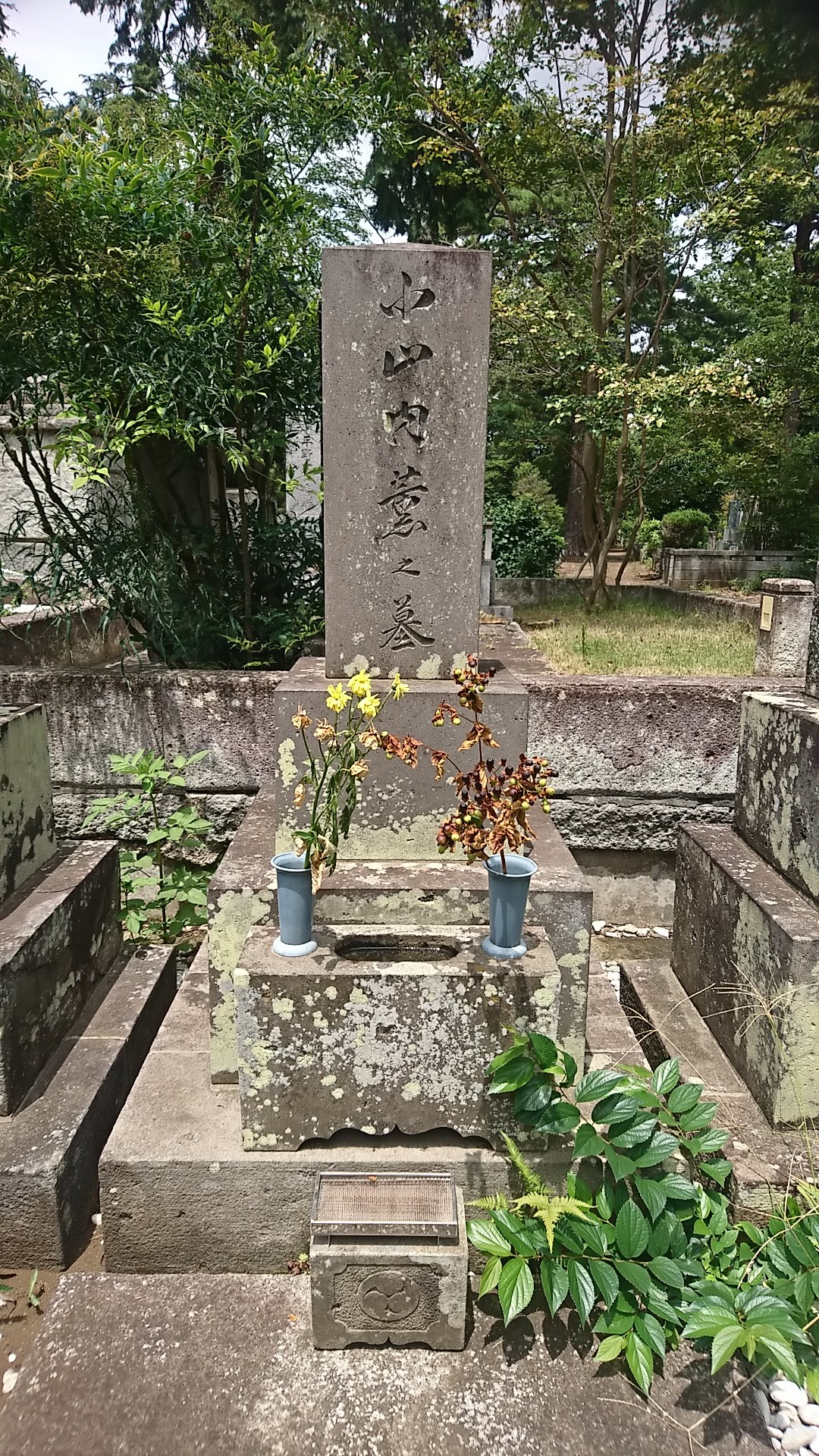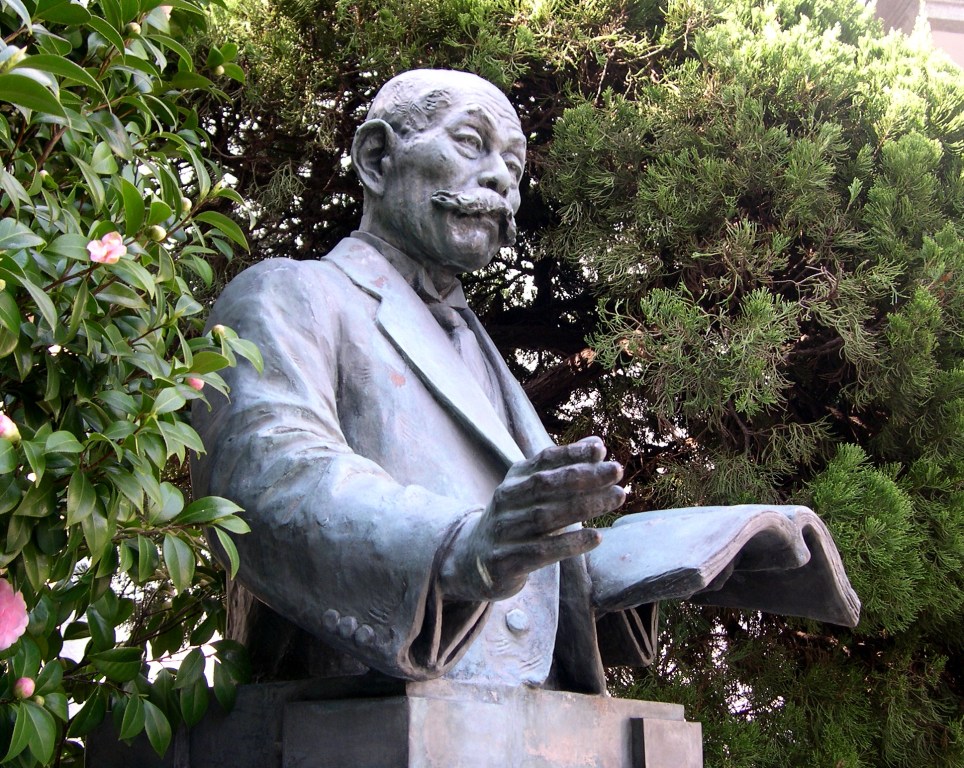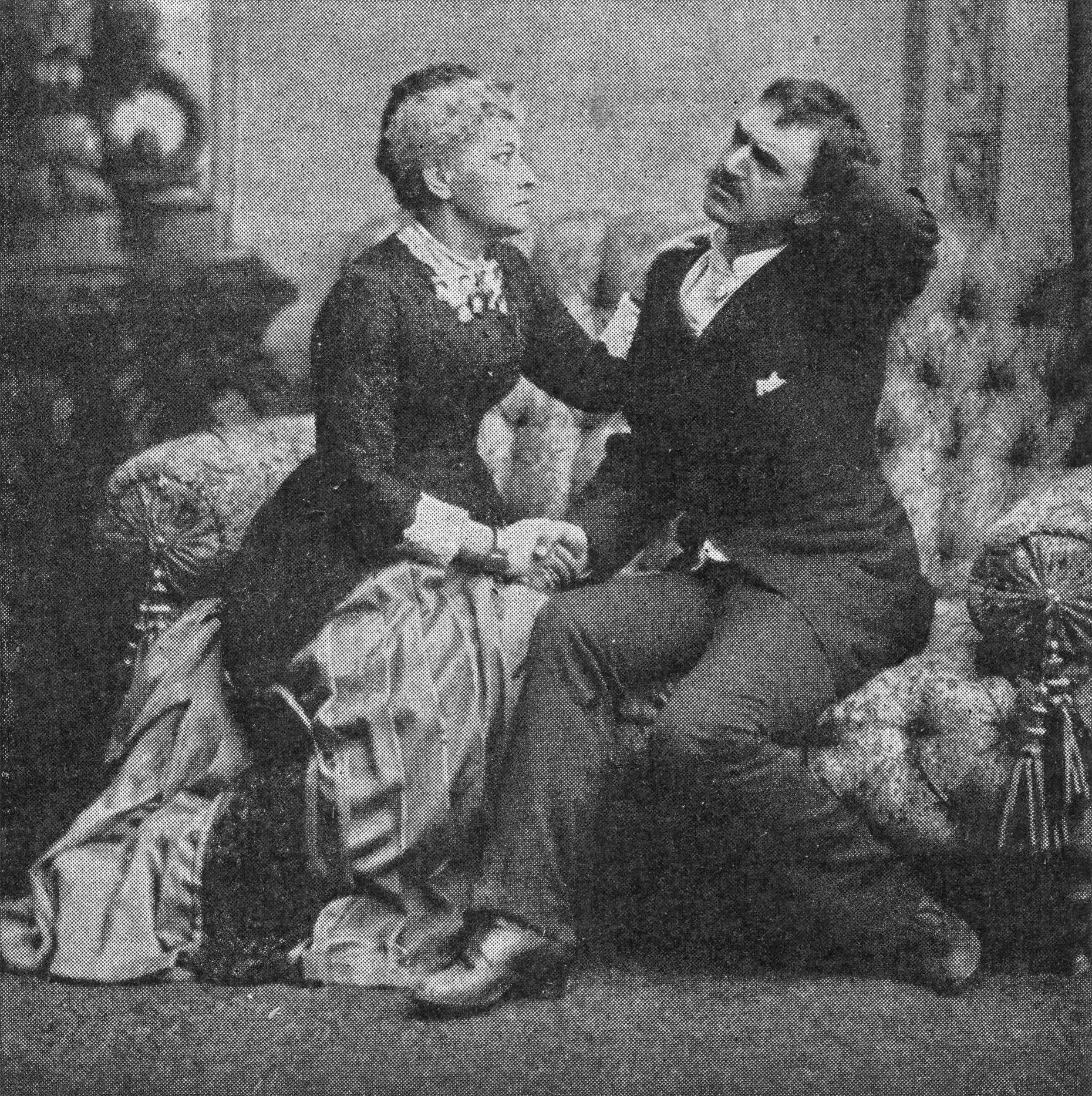|
Shingeki
was a leading form of theatre in Japan that was based on modern realism. Born in the early years of the 20th century, it sought to be similar to modern Western theatre, putting on the works of the ancient Greek classics, William Shakespeare, Molière, Henrik Ibsen, Anton Chekov, Tennessee Williams, and so forth. As it appropriated Western realism, it also introduced women back onto the Japanese stage. History Historical background The origin of Shingeki is linked to various movements and theatre companies. Scholars associate its origin with the kabuki reform movement, the founding of the Bungei Kyokai (Literary Arts Movement) in 1906, and the Jiyū Gekijō (Free Theatre) in 1909.Jortner, David, et al., editors. ''Modern Japanese Theatre and Performance''. Lexington Books, 2006. Also relevant is the establishment of an Ibsen Society in Japan, the Ipusen-kai, by Kunio Yanagita in 1903 to study Ibsen's plays. The Meiji Restoration in 1868 had led to the introduction of Western ... [...More Info...] [...Related Items...] OR: [Wikipedia] [Google] [Baidu] |
Sakae Kubo
was a Japanese playwright and director. Kubo studied and translated German literature at Tokyo Imperial University and then soon he became the disciple of another famous playwright and theatre director, Kaoru Osanai. From his mentor, Kubo had adopted Shingeki theater, a new type of drama that developed in Japan in the early 20th century under the influence of Western-style theater. To honor the death of his teacher, Kubo began to write one of his most famous works, which was '' The Land of Volcanic Ash: A Play in Two Parts'', translated by David Goodman. This play was most recognized for its focus on socialism that was depicted in pre-war Japan. It is seen as realist drama, for it describes the struggles of a reform-minded intellectual in the Hokkaido countryside which took place during the Soviet famine of 1932–33. Early life Kubo was the second son if seven children in his family, born to his father Hyotaro Kubo. The Kubo family had migrated to Hokkaido in 1898 because they ... [...More Info...] [...Related Items...] OR: [Wikipedia] [Google] [Baidu] |
Bungakuza
is a Japanese theatre company. Along with the Mingei Theatre Company and the Haiyuza Theatre Company it is considered one of the "Big Three" among Shingeki theatre troupes. History The company was founded by Kunio Kishida, Mantarō Kubota and Bunroku Shishi on September 6, 1937. Its name means "Literature Theatre". On March 25, 1938, the company staged its first public performances with the plays "Magnificent Woman" (''Migoto na Onna''), "Peace at Home" (''Wagaya no Heiwa''), and "Knock" (''Kunokku''). After suffering repression at the hands of the state leading up to and during World War II, Bungakuza reemerged in the early postwar period. In the 1950s, many Shingeki theatre troupes were viewed as left-wing or even communist. However, Bungakuza was considered one of the least ideological troupes. Thus many people were surprised when Bungakuza's leaders agreed to stage a tour of Communist China in 1961. Even more controversial was the decision to modify the script of t ... [...More Info...] [...Related Items...] OR: [Wikipedia] [Google] [Baidu] |
Kaoru Osanai
, was a Japanese theater director, playwright, and actor central in the development of modern Japanese theater. Biography Kaoru Osanai was born on July 26, 1881, in Hiroshima, the second son of Director of Hiroshima Army Garrison Hospital, Takeshi Osanai. His father was a former samurai from Hirosaki Domain. When he was five, Takeshi died abruptly at the age of 38, leaving his three children Reiko, Kaoru and Yachiyo to his wife Taka. Osanai subsequently moved to Tokyo where he received his education. The family lived comfortably at Takeshi's mansion where Taka and her female friends practiced music. Osanai studied English literature at Tokyo Imperial University, graduating in 1906. In 1909, Osanai founded the Free Theater (Jiyū Gekijō) with Ichikawa Sadanji II and staged translations of Ibsen, Chekov, and Gorky, but there he experienced the limits of doing realist theater with kabuki actors. Osanai described these limits as an "existing theatrical poison", for he aimed to e ... [...More Info...] [...Related Items...] OR: [Wikipedia] [Google] [Baidu] |
Henrik Ibsen
Henrik Johan Ibsen (; ; 20 March 1828 – 23 May 1906) was a Norwegian playwright, poet and actor. Ibsen is considered the world's pre-eminent dramatist of the 19th century and is often referred to as "the father of modern drama." He pioneered theatrical realism, but also wrote lyrical epic works. His major works include ''Brand'', ''Peer Gynt'', '' Emperor and Galilean'', '' A Doll's House'', '' Ghosts'', '' An Enemy of the People'', '' The Wild Duck'', '' Rosmersholm'', '' Hedda Gabler'', '' The Master Builder'', and '' When We Dead Awaken''. Ibsen is the most frequently performed dramatist in the world after Shakespeare, and ''A Doll's House'' was the world's most performed play in 2006. Ibsen was born into the merchant elite of the port town of Skien, and had strong family ties to the families who had held power and wealth in Telemark since the mid-1500s. Both his parents belonged socially or biologically to the Paus family of Rising and Altenburggården—the extende ... [...More Info...] [...Related Items...] OR: [Wikipedia] [Google] [Baidu] |
John Gabriel Borkman
''John Gabriel Borkman'' is a 1896 play by the Norwegian playwright Henrik Ibsen. It was his penultimate work. Plot The Borkman family fortunes have been brought low by the imprisonment of John Gabriel who used his position as a bank manager to speculate with his investors' money. The action of the play takes place eight years after Borkman's release when John Gabriel Borkman, Mrs. Borkman, and her twin sister Ella Rentheim fight over young Erhart Borkman's future. Though ''John Gabriel Borkman'' continues the line of naturalism and social commentary that marks Ibsen's work over the preceding thirty years, the final act suggests a new phase for the playwright which was brought to fruition in his final symbolic work '' When We Dead Awaken''. Characters * John Gabriel Borkman * Mrs. Gunhild Borkman * Erhart Borkman, their son * Ella Rentheim, Mrs. Borkman's twin sister * Mrs. Fanny Wilton * Vilhelm Foldal * Frida Foldal, his daughter * Malene, housekeeper Background The Norwe ... [...More Info...] [...Related Items...] OR: [Wikipedia] [Google] [Baidu] |
Tsubouchi Shōyō
__NoTOC__ was a Japanese author, critic, playwright, translator, editor, educator, and professor at Waseda University. He has been referred to as a seminal figure in Japanese drama. "Wetmore deals cleanly with Japanese theatre as part of the modernization project ..Wetmore notes some of the new attempts within the ''kabuki'' frame then takes us through the work of seminal figures like Osanai Kaoru, Tsbouchi Shōyo, and so on. Biography He was born ''Tsubouchi Yūzō'' (坪内 雄蔵), in Gifu prefecture. He also used the pen name ''Harunoya Oboro'' (春のや おぼろ). His book of criticism, ''Shōsetsu Shinzui'' (The Essence of the Novel), helped free novels and dramas from the low opinion that the Japanese had of such literature. Tsubouchi's writings on realism in literature influenced Masaoka Shiki's ideas about realism in haiku. Tsubouchi's novel, ''Tōsei Shosei Katagi'' (Portraits of Contemporary Students), was one of the earliest modern novels in Japan. His Kabuki ... [...More Info...] [...Related Items...] OR: [Wikipedia] [Google] [Baidu] |
Miyoshi Jurō
Miyoshi may refer to: Places * Miyoshi, Aichi, a city in Aichi Prefecture * Miyoshi, Chiba, a former village in Chiba Prefecture * Miyoshi, Hiroshima, a city in Hiroshima Prefecture * Miyoshi, Saitama, a town in Saitama Prefecture * Miyoshi, Tokushima, a city in Tokushima Prefecture * Miyoshi, Tokushima (town), a former town in Tokushima Prefecture *Miyoshi District, Tokushima is a district located in Tokushima Prefecture, Japan. As of June 1, 2019, the district has an estimated population of 14,025 and a density Density (volumetric mass density or specific mass) is the ratio of a substance's mass to its volume ..., a district in Tokushima Prefecture People with the given name *, Japanese pilot officer *, Japanese speed skater *, Japanese-American actress and singer Other uses * Miyoshi (surname) * Miyoshi clan, Japanese clan {{disambiguation, geo, given name Japanese feminine given names Feminine given names ... [...More Info...] [...Related Items...] OR: [Wikipedia] [Google] [Baidu] |
Tomoyoshi Murayama
was a Japanese artist, play writer, novelist and drama producer active during the Shōwa period in Japan. Early life Murayama was born in the Kanda Suehiro district of Tokyo. His father, who was a medic in the Imperial Japanese Navy, died when he was nine years old. His mother became a fervent Christian after having been converted by Uchimura Kanzo, and was active in the pacifist movement. Murayama was initially encouraged towards watercolors and traditional Japanese painting, but was later drawn to philosophy, particularly the works of German philosophers Arthur Schopenhauer and Nietzsche. He converted to Christianity himself after being assaulted by fellow students for echoing his mother's pacifist views. Murayama started out his career after the Westernization campaign of the Meiji era (1868-1912). Murayama entered Tokyo Imperial University in 1921 with the intention of studying philosophy, but soon left to study art and drama at the Humboldt University of Berlin, Germany ... [...More Info...] [...Related Items...] OR: [Wikipedia] [Google] [Baidu] |
Ichikawa Sandanji II
may refer to: Places *Ichikawa, Chiba, a city in Chiba, Japan **Ichikawa Gakuen (Ichikawa Junior and Senior High School), a large private boys and girls school in Moto-kita-kata, Ichikawa, Chiba * Ichikawa, Hyogo, a town in Hyōgo, Japan *Ichikawamisato, frequently known simply as Ichikawa, a city in Yamanashi, Japan *Ichi River The is a river which flows through the southwest of Hyōgo Prefecture, Japan. The Ibo, Kako, Ichi, Yumesaki, and Chikusa rivers are collectively referred to as the Harima Gokawa, the five major rivers that flow into the Harima Sea. Geography ..., a river in Hyōgo Prefecture Other uses * Ichikawa (surname) {{disambiguation, geo ... [...More Info...] [...Related Items...] OR: [Wikipedia] [Google] [Baidu] |
Julius Caesar (play)
''The Tragedy of Julius Caesar ''(First Folio title: ''The Tragedie of Ivlivs Cæsar''), often shortened to ''Julius Caesar'', is a history play and Shakespearean tragedy, tragedy by William Shakespeare first performed in 1599. In the play, Brutus the Younger, Brutus joins a conspiracy led by Gaius Cassius Longinus, Cassius to assassinate Julius Caesar, to prevent him from becoming a tyrant. Caesar's right-hand man Mark Antony, Antony stirs up hostility against the conspirators and Roman Empire, Rome becomes embroiled in a dramatic civil war. Synopsis The play opens with two tribunes Flavius and Gaius Epidius Marullus, Marullus (appointed leaders/officials of Rome) discovering the plebeians, commoners of Rome celebrating Julius Caesar's Roman triumph, triumphant return from Battle of Munda, defeating the sons of his military rival, Pompey. The tribunes, insulting the crowd for their change in loyalty from Pompey to Caesar, attempt to end the festivities and break up the commone ... [...More Info...] [...Related Items...] OR: [Wikipedia] [Google] [Baidu] |
An Enemy Of The People
''An Enemy of the People'' (original Norwegian title: ''En folkefiende'') is an 1882 play by Norwegian playwright Henrik Ibsen that explores the conflict between personal integrity and societal norms. The play centers on Dr. Thomas Stockmann, who discovers a serious contamination issue in his town's new spas, endangering public health. His courageous decision to expose this truth brings severe backlash from local leaders, including his brother Peter Stockmann, who is a powerful political figure in the town. Set against the backdrop of a community grappling with economic and environmental concerns, the play highlights the often harsh consequences faced by those who challenge established systems. Ibsen’s depiction of this struggle emphasizes the tension between truth and expediency. The character of Peter Stockmann is based on Ibsen’s own uncle, Christian Cornelius Paus, whose political influence and authoritative role in Ibsen's hometown of Skien parallel those of Peter in ... [...More Info...] [...Related Items...] OR: [Wikipedia] [Google] [Baidu] |
Ghosts (play)
''Ghosts'' () is a play by the Norwegian playwright Henrik Ibsen. It was written in Danish and published in 1881, and first staged in 1882 in Chicago, Illinois, US, performed in Danish. Like many of Ibsen's plays, ''Ghosts'' is a scathing commentary on 19th-century morality. Because of its subject matter, which includes religion, venereal disease, incest, and euthanasia,Ibsen, Henrik, ''Ghosts. Four Major Plays''. Oxford World's Classic. Oxford University Press. (1981) it immediately generated strong controversy and negative criticism. Since then, the play has come to be considered a "great play" that historically holds a position of "immense importance". Theater critic Maurice Valency wrote in 1963, "From the standpoint of modern tragedy ''Ghosts'' strikes off in a new direction.... Regular tragedy dealt mainly with the unhappy consequences of breaking the moral code. ''Ghosts'', on the contrary, deals with the consequences of not breaking it." Ibsen disliked the English tr ... [...More Info...] [...Related Items...] OR: [Wikipedia] [Google] [Baidu] |






